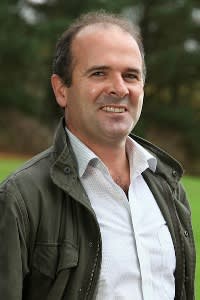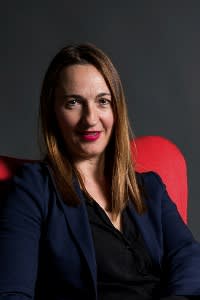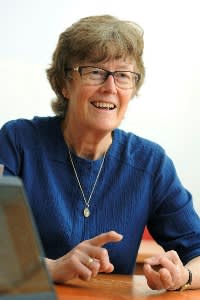Until finally not long ago, the to start with-yr organization and economics syllabus that Carlos Cortinhas experienced to teach could, by his very own admission, “be a drag”. Undergraduates labored as a result of textbooks and lectures detailing indifference curves and sector equilibrium, memorising the simple theories and styles of economics to arrive at the future phase of their levels.
Now, the class taught by the associate professor of economics at Exeter university in the British isles is composed extra of debate and discussion than rote learning, and pupils talk about weather adjust right before they even understand about supply and need.
This novel technique works by using Core (Curriculum Open up-obtain Resources in Economics) — a refreshing technique to teaching that grounds economics in the real planet.
Began a 10 years ago and now applied in 310 universities in 68 countries, it flips common economics teaching on its head, starting with thorny world issues that problem youthful folks and checking out how a numerous range of theories and styles can support solve them.
“It’s fully adjusted how we teach,” Cortinhas suggests. “The pupils come to be extra engaged, interactive. It is a real joy.”
Assorted, practical and obtainable, Core exemplifies a new form of teaching — one particular that is in particular at residence in organization departments.
As organization and administration schooling has developed, so has economics teaching in organization faculties. This has developed new prospects for analysis collaboration, practical get the job done and teaching for new audiences — all of which has sown the seeds of refreshing considering about a historically conservative and theoretical subject.
“There’s a change to how you teach economics in a organization school,” suggests Michael Kitson, senior lecturer in worldwide macroeconomics at the College of Cambridge Decide Company School in the British isles. “It’s significantly extra open to pluralistic means of considering it’s only one particular portion of a large range of disciplines.”
Kitson appears to be back fondly on many years where Marxist, Keynesian and neoclassical economists labored side by side, but believes conventional economics departments have shed some of their range.
Now he feels extra at residence in the organization school, where teachers from a large range of disciplines get the job done on practical troubles. “That pluralism in economics departments has gone,” he suggests. “Where that pluralism now exists is in organization faculties.”
A British Academy paper on organization studies, released last month, discovered that organization and administration is interdisciplinary practically earlier mentioned all else — encompassing topics from finance and economics to sociology and geography, and a big and numerous student overall body.
In 2019-20, one particular-sixth of undergraduates and one particular-fifth of postgraduates in the British isles were being enrolled on a organization and administration course, of whom 39 for every cent were being worldwide pupils and about 20 for every cent from a black, Asian or minority ethnic background.
Lisa Magnani, professor of economics at Macquarie College in Australia, suggests the broad attractiveness of organization studies has pressured economics lecturers to assume extra creatively.
“A dimension of economics is a deficiency of range — the potential to scare women absent, or to draw pupils from sure forms of socio-economic backgrounds,” she suggests. “Both at undergraduate degree, and at the MBA degree, we’ve turned economics teaching upside down . . . the notion is utilized and engaged economics.”
Broader audiences and real-planet issues mean economics teaching should recognise a wider range of styles and ways, course leaders say. Now, each Era Z undergraduates and MBA pupils are extra very likely to be progressive and socially mindful, if not usually economically leftwing.
“If we went back fifteen many years ago, MBA pupils were being generally wanting for the capabilities and schooling that would enable them to progress in their occupations,” Kitson points out. “That’s adjusted. More and more, they’re seeking to fully grasp the greater picture in phrases of world troubles — inequality, weather adjust, racism. These are significantly extra prominent than making an attempt to maximise [their] revenue.”
Progressive sights might be ever more in need in organization departments, but they do not usually have an straightforward trip.
In the British isles, the College of Leicester faces an worldwide boycott over cuts that intended scientists specialising in vital and leftwing ways to organization and economics were being specific for redundancy.
The university suggests it is inserting better emphasis on significant information, analytics and synthetic intelligence. It aims to “focus on analysis on modern issues where there is clear need from people of analysis and from funders”, to equip graduates with the “relevant capabilities to drive optimistic impression all over the world”.
On the other hand, David Harvie, a political economist and one particular of individuals dealing with redundancy, suggests cuts to vital thinkers have ruined the risk of a genuinely numerous and tough organization curriculum at Leicester.
“I assume it will die out,” he suggests. “I really feel like some of it is centered on the notion that another person who goes to Leicester is not equipped to review humanities. But seem at folks now rediscovering Keynes, Marx — folks do need history.”
Other educators argue that new types of economics teaching do not go significantly more than enough. At Rethinking Economics, a student and tutorial-led movement to reshape the subject, co-director of functions Tree Watson suggests although the real-planet element of Core opens up new views, genuinely pluralist idea is lacking. “It’s nevertheless neoclassical economics at the conclude of the day,” she suggests.
But Wendy Carlin, professor of economics at College College or university London and a project director at Core, argues that the new means of teaching economics are currently being embraced not just in organization faculties but wherever the subject is taught. With impressive outcomes, too. A 2020 review discovered the marks of pupils who took Core averaged seventeen for every cent bigger than individuals who did not follow the syllabus, and not only economics pupils felt a boost but also individuals finding out finance and administration topics.
Carlin describes the Core technique as beginning not from the assumptions of excellent info and styles, as in conventional economics teaching, but in the way the real planet will work, with all its imperfections.
That, she hopes, will not only make economics extra obtainable for pupils, but will also support make new theories and frameworks for the troubles of tomorrow.
“These distinctive concepts of funds and all the measurements of [gross domestic product] came out of the Wonderful Despair — we facial area distinctive issues now,” she suggests. “There’s an hunger for seriously revisiting how we check out the economy . . . We’ve shown it’s achievable, but there is a great deal extra to be accomplished — and should be for universities to maintain their relevance.”








More Stories
How To Host a SaaS Application On Your VPS Server
Why Your Business Plan Won’t Make You Rich Or Famous
Trending Topics and News